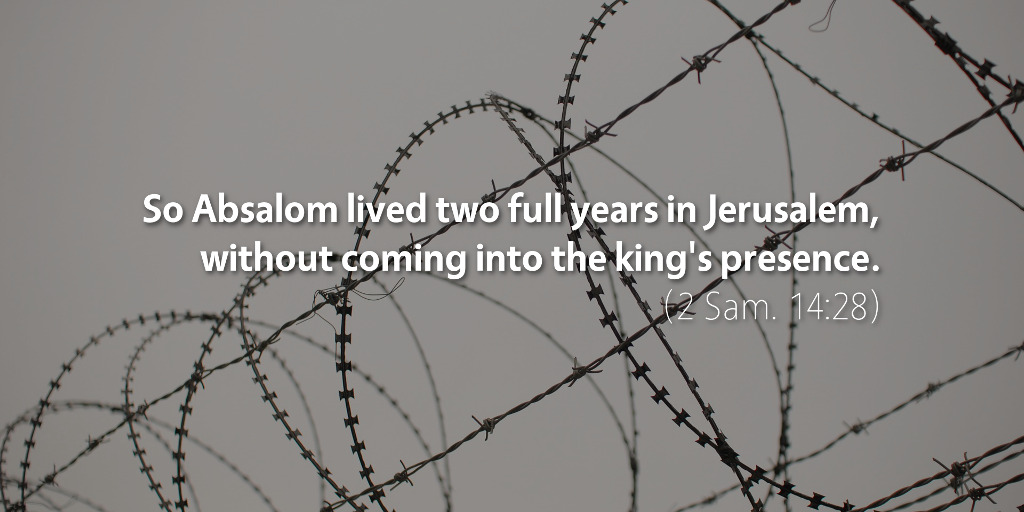Bible Readings for September 18th
2 Samuel 14 | 2 Corinthians 7 | Ezekiel 21 | Psalm 68
By allowing Absalom to return to Jerusalem, David, as we will see, is making a catastrophic mistake—a mistake so serious that it will eventually bring David’s entire kingdom and even his life into jeopardy. The problem isn’t so much that Absalom comes back but that David brings Absalom back without any demand for his repentance or even a plan to shepherd his spiritual growth. Because of these mistakes, Absalom returns entirely unchanged, setting up the bloody, treacherous story that will unfold over the next few days of readings. In today’s meditation, we will examine how David could have made such a disastrous mistake.
First, David allows Joab to manipulate his emotions. Just as Nathan captured David’s imagination through a parable to confront David about his sin, so now Joab uses a parable, spoken through a woman pretending to be a widow, to manipulate David into bringing Absalom back (2 Sam. 14:1–21). But for the next two years, David refuses to see Absalom, even though Absalom has returned to live in Jerusalem (2 Sam. 14:24, 28).
Second, David fails to recognize several red flags suggesting that Absalom has not, in fact, changed in the least. Absalom burns down Joab’s field to gain Joab’s attention (2 Sam. 14:28–32), but instead of being disciplined for this reckless, foolish act, Absalom gets exactly what he wants: an audience with his father. Then, David proceeds to pardon Absalom without any requirement that he change (2 Sam. 14:33). In all of this, David foolishly refuses to confront his son—and, as we will see tomorrow, the consequences for failing to discipline Absalom will be dire for David.
It is not uncommon that we too should be afraid of the hard work of discipline. Confronting and disciplining sin in those around us is difficult, awkward, messy work. The gospel, however, gives us all the resources we need to confront sin as we should. The gospel insists both that we are sinners and that Jesus nevertheless loved us enough to die for us. Furthermore, the gospel announces that any who come to Jesus through faith will receive the gift of the Holy Spirit in order to begin the process of change.
What this means, then, is that in Christian community we don’t simply sweep sin under the rug and hope for the best in people. Instead, the gospel compels us to address the sin in our community with rigor and with grace, refusing to allow people to remain untransformed but instead taking up the mandate of Jesus to shepherd people for the sake of their souls, the glory of Christ, and the good of the church. This story is a warning to us: if we fail to discipline an Absalom today, we will certainly reap the bitter fruits of our negligence tomorrow.
Podcast: Play in new window | Download (4.9MB) | Embed
Subscribe: Apple Podcasts | RSS | More

Scripture quotations are from The Holy Bible, English Standard Version copyright © 2001 by Crossway Bibles, a division of Good News Publishers. Used by permission. All rights reserved.


